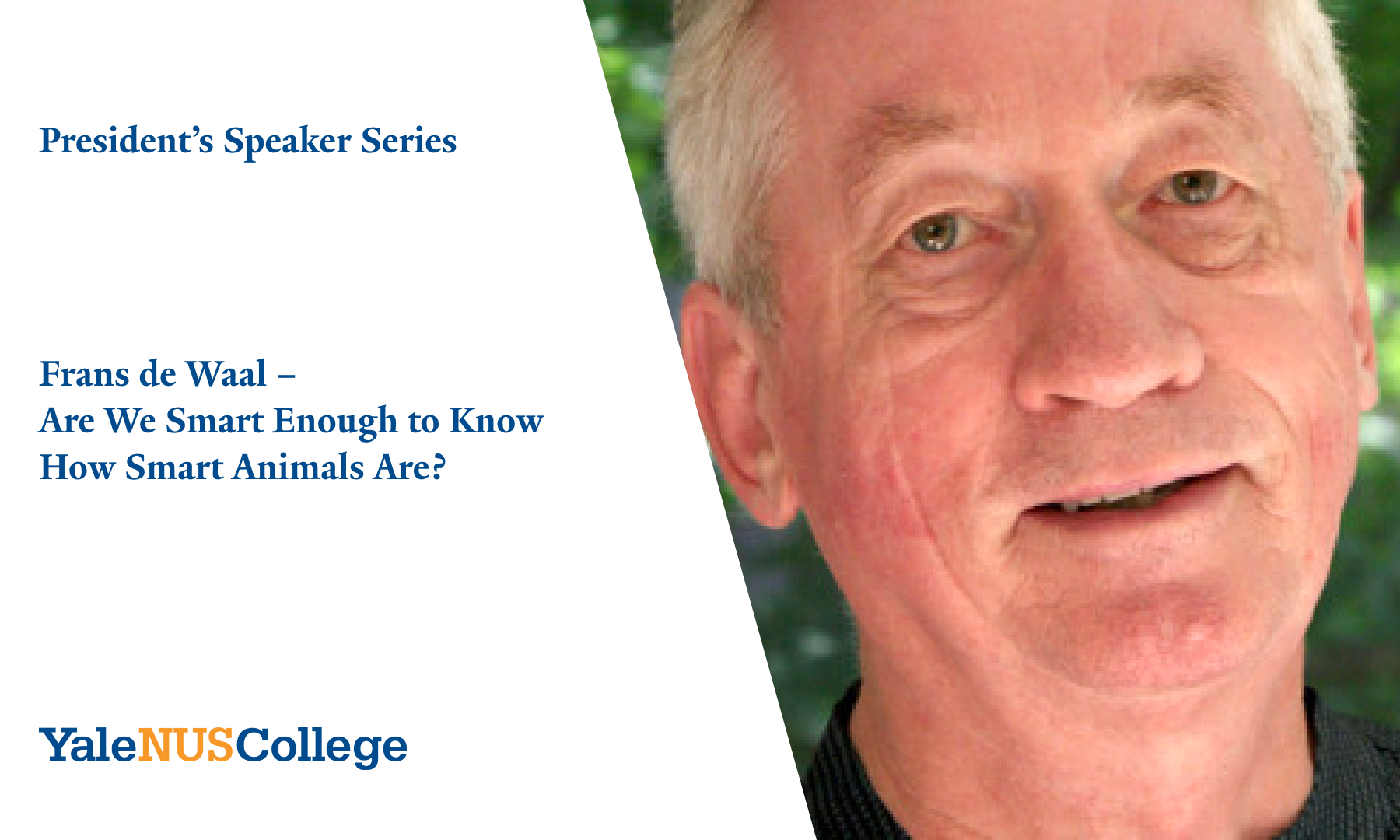

What sets humans apart from other animals? Intelligence? Frans de Waal challenges the view that there is a wall separating human and animal intelligence. Modern neuroscience increasingly supports his view. Human mental uniqueness claims have fallen one by one over the last few decades. Other primates are now seen as political, cultural, perhaps even moral beings. This revolution in recognising the cognitive capacity has been rippling beyond the primates to include the entire animal kingdom, from tool-using crows to cooperating dolphins. New discoveries also suggest unexpected abilities in animals, such as awareness of their own knowledge (metacognition) or an ability to reflect on past and future (time travel).
Frans de Waal will provide an overview of the findings and the methods used to make such discoveries in primates, elephants, octopuses, corvids, cetaceans, and fish. The central message of this new science, known as evolutionary cognition, is one of mental continuity across all species, with human intelligence being a variety of animal intelligence.
Q&A will follow the address.
ABOUT FRANS DE WAAL
Dr. Frans B. M. de Waal is a Dutch/American ethologist and biologist known for his work on the behaviour and social intelligence of primates. His first book, Chimpanzee Politics (1982) compared the schmoozing and scheming of chimpanzees involved in power struggles with that of human politicians. Ever since, de Waal has drawn parallels between primate and human behaviour, from peacemaking and morality to culture. His scientific work has been published in technical articles in journals such as Science, Nature, Scientific American, and outlets specialised in animal behaviour. His popular books – translated into over twenty languages – have made him one of the world’s most visible primatologists. His latest books are The Bonobo and the Atheist (Norton, 2013) and Are We Smart Enough to Know How Smart Animals Are? (Norton, 2016).
De Waal is C. H. Candler Professor in the Psychology Department of Emory University and Director of the Living Links Center at the Yerkes National Primate Research Center, in Atlanta, Georgia. He is also Distinguished Professor at Utrecht University. He has been elected to the (US) National Academy of Sciences and the Royal Dutch Academy of Sciences. In 2007, he was selected by Time as one of The Worlds’ 100 Most Influential People Today, and in 2011 by Discover as among 47 (All-Time) Great Minds of Science.
Please click here to register.
Yale-NUS College, an autonomous unit of NUS, uses a third-party events management website, Peatix. We will only use your personal data for the purposes of scheduling, processing, administration and/or management of the event. Please read the Peatix Privacy Policy here.


